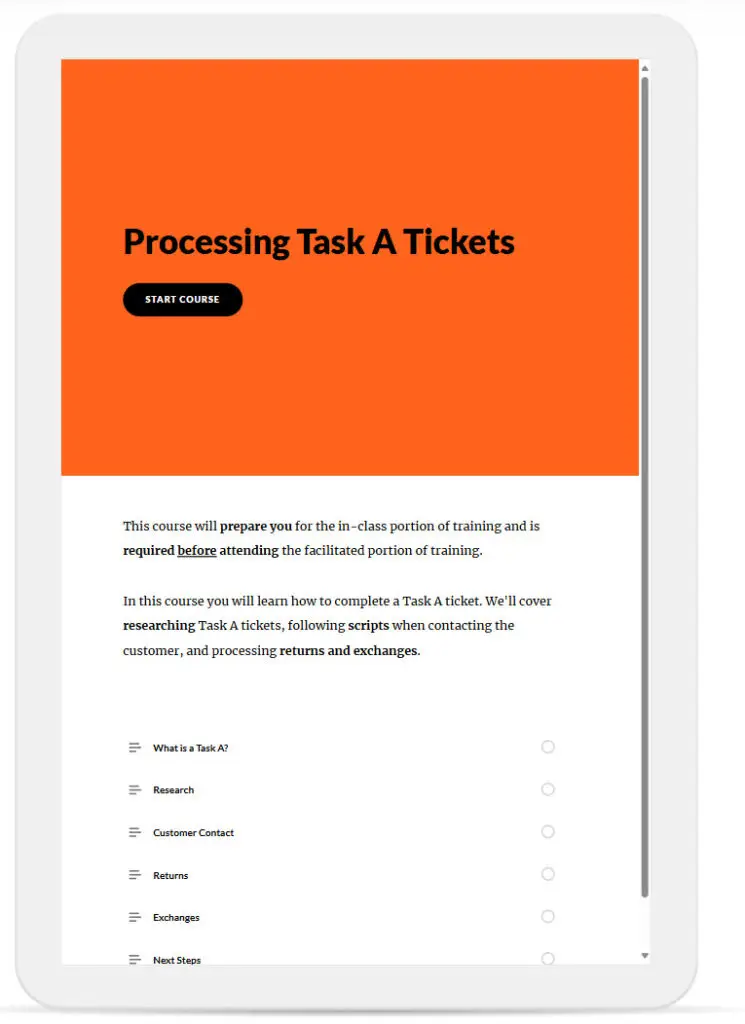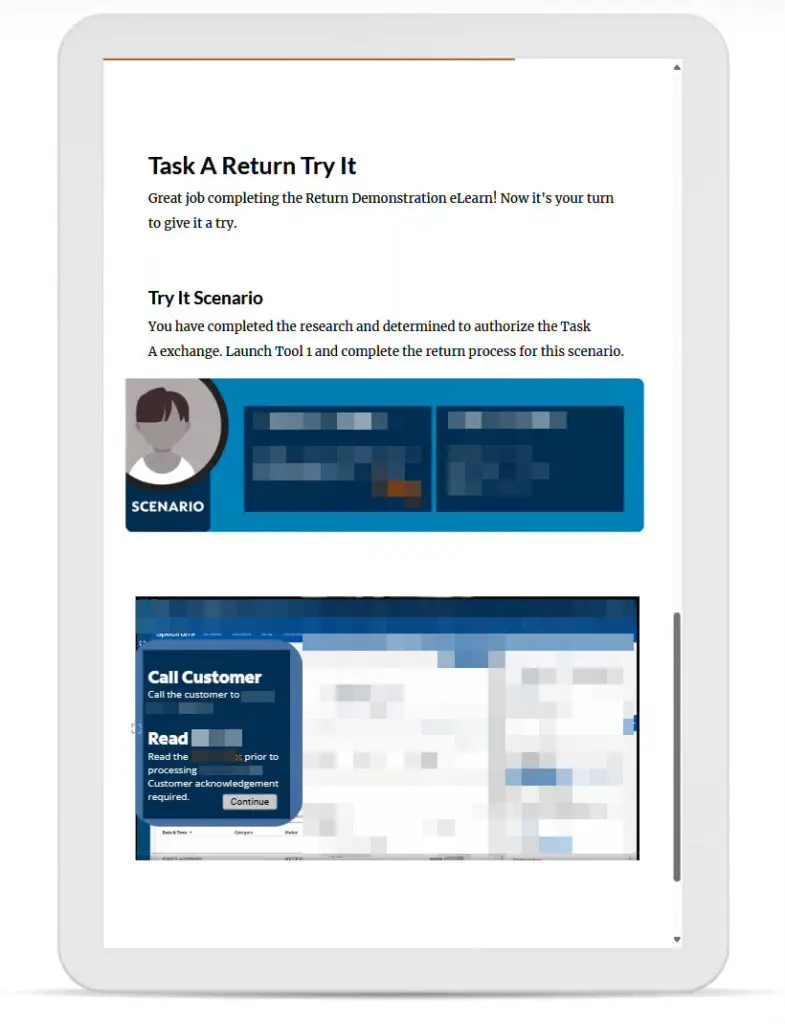xAPI
Transforming Contact Center Training: A Blended Learning Approach for Upskilling Agents
Existing training for upskilling contact center agents from Level 1 to Level 2 required three full days off the floor, creating operational strain and inconsistent outcomes. I redesigned the program using a blended, flipped-classroom model that significantly reduced off-the-floor time while improving learner confidence and overall performance.
The Process
THE CHALLENGE
Lost Productivity and Inefficient Training Methods
Handling Task A tickets required agents to follow a detailed and nuanced process, but existing training methods failed to address critical knowledge gaps effectively. Agents arrived at training sessions with varying levels of prior experience, which created inconsistent performance and uneven results. This inconsistency not only led to errors in task handling but also contributed to lost productivity as agents struggled to meet performance expectations. The lack of realistic practice opportunities and structured post-training support further compounded the issue, making it costly for the organization to rely on inefficient training methods that didn’t deliver measurable outcomes.
THE SOLUTION
A Tailored, Hands-On Learning Experience
I developed a three-pronged approach to address these challenges:
- Personalized Learning Paths: Using Articulate Storyline and Rise, I created an adaptive e-learning module that assessed agents’ prior knowledge and adjusted the training content accordingly. This ensured that agents focused only on areas where improvement was needed.
- Realistic Practice: In-class sessions featured scenario-based exercises that simulated the complexities of handling Task A tickets. Agents practiced in a safe, supportive environment, building confidence and skill.
- Post-Training Support: I introduced an observation checklist for supervisors to use during on-the-job evaluations. This tool provided a structured framework for assessing performance, giving agents actionable feedback and ongoing guidance.
THE IMPACT
Reducing Training Time While Increasing Competency
The revised training program delivered measurable improvements in both efficiency and effectiveness:
- Training time decreased by 33%, allowing agents to spend more time on the job while still achieving training objectives.
- Supervisors reported a noticeable improvement in agent confidence and adherence to best practices.
- Feedback from agents emphasized the value of the personalized learning paths, realistic scenarios, and structured support, leading to higher engagement and satisfaction with the training.


